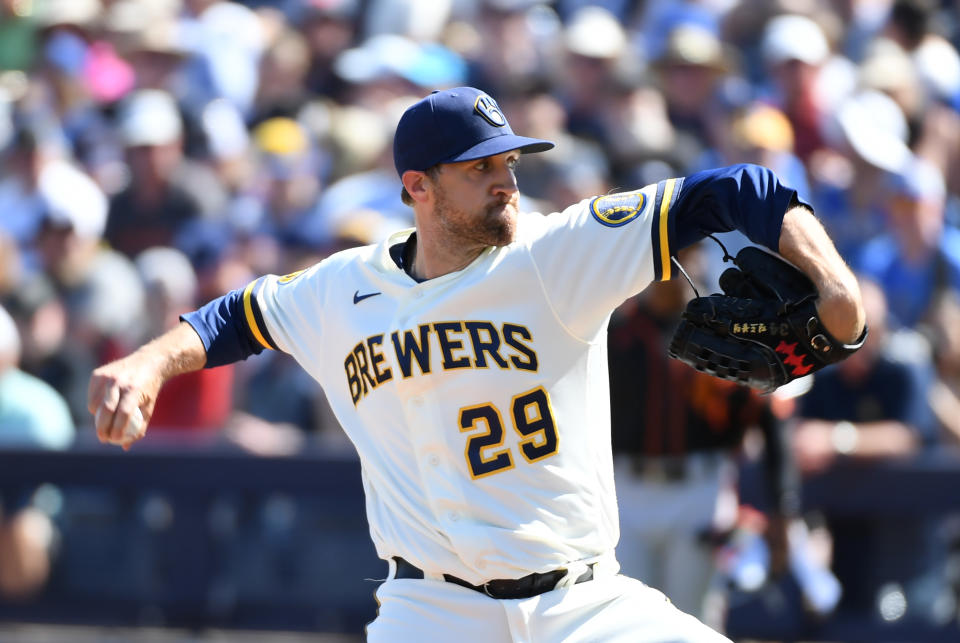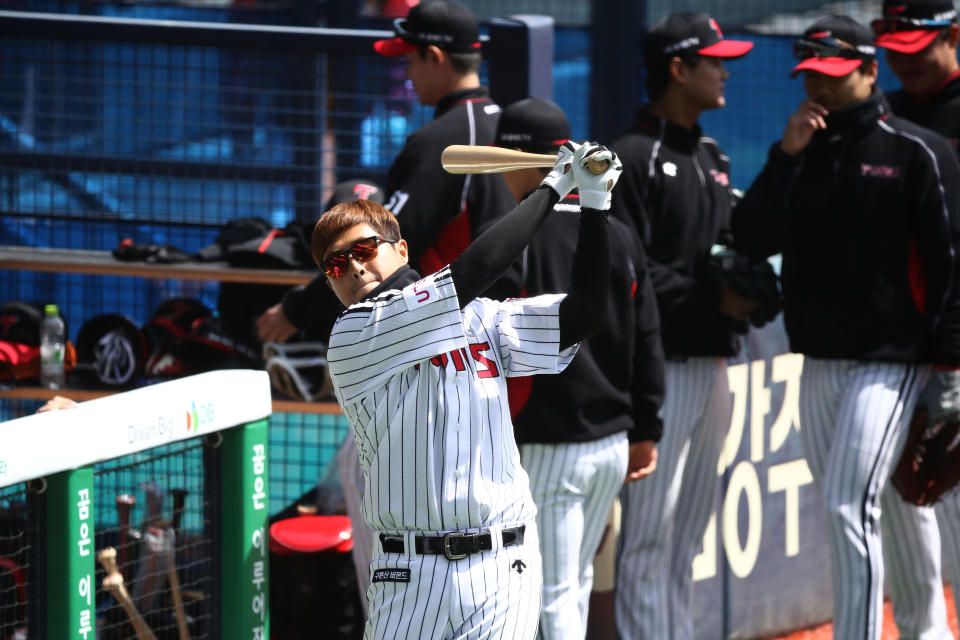'Just enjoy it': American veterans of the KBO are excited for the league's moment on the world stage
Merrill Kelly pitched in Korea for four seasons, those summers square in his athletic prime. He was what scouts call — and what he calls — a “stock righty,” which means good but probably not great, some velocity but nothing extraordinary, and with all the standard pitches.
He’d traveled to Incheon for an opportunity that seemed a long way off had he remained with the Tampa Bay Rays. Stock righties find work in the major leagues, though not often in Tampa’s starting rotation. He’d stay in Korea a couple years, make a little money, then hurry back to big-league free agency and the rest of his life. That was the plan, to make the best of it and get home. He stayed for those four seasons and loved them.
“When guys go over there, it’s really not the best situation,” said Josh Lindblom, a pitcher who’d plotted the same course in the same winter. “You’ve failed at the major league level. You’re not really going over there on your terms. That’s hard.”
[A primer on the KBO: How to enjoy one baseball league’s return]
He paused, then continued, “And I’ve never had more fun playing baseball than I did there. Just the joy of it.”
The 10-team Korea Baseball Organization will open its season Tuesday under many of the distancing and other preventative measures that exist in the streets outside its empty ballparks. It’ll be baseball thousands of miles away featuring mostly unfamiliar players in something close to a vacuum, which is still baseball. ESPN will show six games per week in the United States.
Merrill Kelly will watch. So will Josh Lindblom. Trey Hillman, a manager for two seasons in Korea with SK Wyverns, for whom Kelly pitched, will watch. In the days leading to baseball being played somewhere (and weeks after the Chinese Professional Baseball League opened its season in Taiwan), the three of them professed an affinity for the game in Korea, for the people who in ordinary times fill its ballparks, for the back-leg and launch-angle and live-ball offensive emphases that predate the recent MLB trend and for the personal experiences there that hardened their love for all things baseball. It’s not Major League Baseball. For that, they said, they were grateful, as Korean baseball asked them in, made them better and allowed them to share in the joy.
“Josh,” Kelly said, “is so right.”
A long way from Yankee Stadium, from Dodger Stadium, where there were to be ballgames this week, and a long way from a league office that is only now beginning to see a precarious path to real baseball games amid the coronavirus pandemic, Korean baseball climbs to the international stage.

Among Lindblom’s first thoughts — he played for Lotte for three seasons and Doosan for two — was for his former teammates, with whom he’d practiced his Korean, learned a culture, rode the buses, shared their dinner tables and even won a championship.
“It’s going to be unbelievable for those guys,” he said. “They watch Major League Baseball nonstop. They have favorite players in Major League Baseball. They watch them and try to emulate them. They’re watching major league highlight videos on YouTube on the buses, in the clubhouses and in the weight rooms.
“Now, the guys they watch every single day are going to be watching them.”
So, what’s it look like?
“A lot of bat flips, even on singles,” Hillman said with a laugh. “If the guy squares the ball up, bat flip. You know what, don’t judge it. Just enjoy it. That’s exactly how I had to satisfy my mind.”
Said Kelly: “They’ll flip it all the way down to third base. When I first got there and somebody was throwing the bat down the line, you’d want to get mad. Then you understand that’s just what they do. You have to be OK with it.”
When he returned to the United States and, in 2019, made 32 starts for the Arizona Diamondbacks, his first in the major leagues, he allowed 29 home runs. He saw a few bat flips as a result and generally had a recurring thought: “I’ve seen a lot worse.”
Sunglasses. The managers and coaches often wear them, even at night. They go with a typically stoic, arms-crossed, lock-jawed demeanor. Lindblom guessed that in five KBO seasons he had two conversations with his managers. Hillman brought a wholly different style, and even became known as the manager who welcomed a punch in the chest whenever a certain one of his outfielders — Ui-yun Chung, he said — homered. (“He’d smoke me,” Hillman recalled.)
Kelly’s pitching coach — Sohn Hyuk, now the manager for Kiwoom — would remove his golden-hued sunglasses when visiting Kelly on the mound.
“He knew I wasn’t going to be able to take him seriously,” Kelly said.

Pitching coaches, not the managers, make pitching changes. The coach remains near the mound as the reliever delivers his warm-up pitches, at the conclusion of which he likely will offer additional advice. Also, the starting pitcher often throws between innings on the warning track near his dugout, a few tosses as the inning winds down. For the SK Wyverns, the duty of protecting the starting pitcher from foul balls (and, perhaps, bat flips) falls to the starting pitching from the previous game.
The details make it charming, they agreed. The songs from the fans, which, each said, would be missed. The cheerleaders, too. Every team, Lindblom said, will have at least one batter who could hit in the major leagues today. You know, if there were a major leagues today. Defense, he found, was not an emphasis. Pitching can be thin.
“People just have to realize it’s different,” Lindblom said. “It’s not going to be Major League Baseball. And you just have to drop the comparisons and enjoy the game.”
Worked for him. And for a certain stock righty. And for Hillman, too. And they’ll all be watching, happy for the memories, happy for the baseball.
“At the end of the day,” Hillman said, “it’s which team touches home plate more.”
More from Yahoo Sports:

